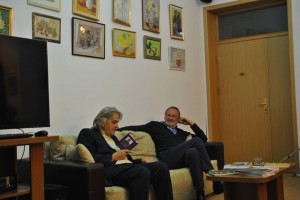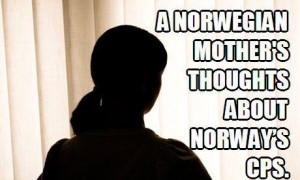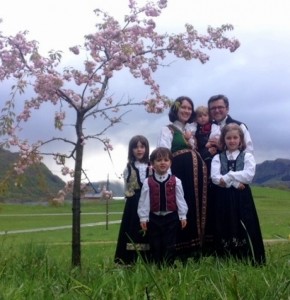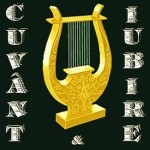Predicatorul
M-am dus să-l ascult
în fiecare duminică m-am dus
era o iarnă grea și biserica
Era mai caldă decât camera
mea de la subsol.
După predică beam vin cald
și câteodată îmi era rușine
Căci beam până se încălzea inima.
Dar nu de asta m-am dus
Era bătrân predicatorul
Unii spuneau: fără vlagă
Eu însă nu-i ascultam
El îmi vorbea mie direct
Și despre ceva ce nu înțelegeam
despre suflet.
Era o iarnă grea
Ca un păcat neiertat.
M-am dus la proces cu mari speranțe
M-am dus la proces cu mari speranțe.
Judecătorii îmi fuseseră
frați de arme.
Ne-am salvat reciproc viața,
sau mai bine ziz:
eu le-am salvat de multe ori viața
fiind cel mai bun ostaș.
Și de câte ori nu mi-au
mulțumit atunci în noroi,
în tranșee!
Acum, după aproape două ore
în care se pare că nici nu m-au recunoscut,
Frații mei de arme
m-au pus în lanțuri.
Temporar, doar temporar…
Mâine dimineață voi fi executat.
Când se reîntorc armatele
Când se reîntorc armatele
o parte dintre soldați
vorbesc o altă limbă,
o limbă străină.
Se pare că
doar copiii mai înțeleg
privindu-i respectuos
și ascultându-i
cu gura căscată.
Când Moartea îți va bate la ușă
Când Moartea îți va bate la ușă
vei simți un gol mare în stomac
și tremurând tot, cu genunchii moi
te vei duce să-i deschizi
te gândești că a venit prea devreme,
pe neașteptate, și ai vrea să te împiedici de covor
ai vrea să tragi de timp cât mai mult
ai vrea să nu ajungi la ușă
dar în același timp ceva te forțează să te grăbești
ca să treacă cât mai repede
momentul acesta care
n-ar fi trebuit să existe
și așa prins între ușa de la intrare
și Moarte te bate gândul că
acest moment se va repeta la nesfârșit!
Dispărut în timp
Din somnul uterin
precoce în lumină aruncat
mâini reci mă pipăie
și larma mă silește
să strig, să strig.
Un univers fereastra joasă și-a deschis
mă cațăr pe țărmul nou
și anevoie mă trezesc.
Și vară peste iarnă trece
cum risipite clipele adorm
în pleoape de bătrâni…
Alunec repede în timp cu gheare încă mai încerc
să zgârii urme în cristal
Zadarnic gând
sunt încă mic, știu bine pe aripă de vânt
aștept să cresc…
Încet, încet m-am ridicat deasupra coamelor de
munți să văd în depărtare
icoane
ridicate de străbuni pe umeri firavi de fecioară.
Uitate sunt acum și părăsite în povară
acolo unde ocrotiți de beznă tiranii timpului
mi-au pregătit sfârșitul…
Cu sulițe de foc am fost străpuns în gleznă
și am murit în universul lor.
Lumina roșie de sânge
își umole cugetul și firea
rămasă singură privirea
întoarsă înlăuntru plânge!
Am dispărut în timp,
am dispărut în ruga interioară
cuvinte noi deschas-au alte porți
cuvinte-abia șoptite
m-au ridicat din beznă.
Știam că vii din neputință
cuget deșteptat și frate în credință.
Alături, greutate bună,
pământul ne ridică
în soare de când lumea răstignit
în evantai albastru.
Cu pas nesigur, stânjenit,
caut sprijin pentru-amândoi
și-aud
sunt tot aceleași vechi cuvinte noi
acum punte străvezie de cristal.
Și timp tot trece îngropat în timp
Sunt moș cu unghia răsfir
petale de migdal.
Țara lui Soron
A trecut războiul, dar cerul este încă o gură
fierbinte, dragon ce macină câmpuri de luptă
deznădejdi, suflete, speranțe.
Pe strada noastră lumea nu mai este aceeași:
doar un bătrânel culcat pe o carte deschisă, o
funcționară părăsită și doi-trei tineri care-și
privesc mâinile cu degetele albe, răsfirate.
Pantalonii, cămașa, pașii îmi sunt așezați frumos,
lângă cârciumă, îmi sunt mici acum și de aceea
i-am și promis cuiva venit de departe. Dar nu fi
trist, mi-au fost și mie doar împrumutați.
A trecut războiul, dar zilnic mă gândesc ce s-ar fi
întâmplat dacă nu m-aș fi reîntors și nu ți-aș fi
povestit despre țara lui Soron și desprea evadarea
din foc.
Anul trecut
Ar fi trebuit să fim deja plecați
Și în locul nostru să fi fost
Plantați pomi fructiferi
Sau altceva folositor.
În orice caz, asta s-a discutat,
Așa s-a promis!
Nu știu de ce, și nimeni
De fapt nu știe,
De unde și când au dispărut câini?
Trebuie să fi fost vreo neînțelegere.
Și acum bătrânilor le este frică
Și nu mai pot să plece.
Stau ascunși după perdelele
Căzute din cer
Anul trecut.
Prin vechi catedrale cathare
Mă întreb dacă ați știut
că în catedrale vechi cathare
sfinții, tulburați de pași străini,
de mirosul de om,
se sinucid?
Doar într-un singur loc
mai sunt supraviețuitori.
De aceea nu e de mirare
că la pagina patruzeci și șapte
și numai acolo
dintr-o ruină se aude un cântec
de durere, dar și de iertare.
Aceasta este pagina în care
noi ar fi trebuit
să fim arși pe rug.
Tutungeria
Într-un târziu mi-am dat seama
Că tutungeria din colț
De unde îmi cumpăr ziarele
– otrava mea zilnică –
a fost
clădită peste un mormânt.
Fiecare ziar are texte funebre
și mesaje de comunicare
între morți, cum ar fi:
– La câți metri ai putrezit?
– Acum nu mai simt umezeala!
sau
– Nici măcar aici nu pot scăpa de voi?
Până și țigările sunt altfel aici,
parcă inhalez suflete putrezite.
Și totuși e bine așa.
Mă gândesc cu groază
dacă vor dărâma tutungeria
și în locul ei
vor construi o creșă… !
Nebăgat în seamă cu brațele schilodite
Nebăgat în seamă
cu brațele schilodite,
artrotice
s-a prăpădit
cel care
o viață întreagă
nu a sculptat
altceva, decât
răstignirea lui Cristos.
La înmormântare
nu a venit nimeni.
Numai Dumnezeu.
Naufragiu
Am plecat să te caut
pe mare.
Eram în costum și pălărie
și marea era
de gală îmbrăcată.
Din cer oglinzi
ne reflectau
ținându-ne de mână
cu toate că noi
nu ne-am regăsit.
În adâncuri
veșnicul naufragiat
s-a înroșit la față.
Era gol și
gol pușcă a plecat
și nimeni
nu știe unde.
Eram în costum și pălărie,
eram plictisit,
eram naufragiatul veșnic
atunci când te-am regăsit.
Probabil
Probabil că oricât mă lupt
eu nu voi ajunge niciodată
să fiu din nou lut.
Probabil că sângele meu
este apa pe care
tu o bei.
Probabil că suntem împreună
doar pentru că făurim
cercei pe care luna
ni-i face cadou de nuntă.
Probabil că
aşa gândeam când
eram piatră.
Biblioteca cerului
Dintr-un cer prabusit, cazut ca o rana vie printre dealuri, case si oameni, dintr-un cer care se dezintegreaza undeva intre Soare si Pamint, cad nesfirsite mesaje umede. Si eu le citesc! Fiecare strop de cer cazut in ochii mei este o scrisoare, o odisee, un destin, iar hainele de pe mine, ude leorca si baltocile din drum, sunt bibliotecile cerului. Oricine poate citi marturiile cazute din cer ; orbii, surdo-mutii, sfintii, ticalosii, lupii si viermii. Si mai ales viermii, care stau de paza, dar si cu rabdare, rod timp, rod eternitate, transformind totul in ceea ce suntem.
-Linistete-te! Te rog sa taci, te rog sa nu-mi vorbesti aiurea in cap, fortindu-ma sa scriu cu totul altceva decit imi planificasem!! Tacere vreau, tacere…
Un colt de strada, un bulevard, pe care sunt obligat sa-l cuceresc, sa-l strabat, cu toate ca e complet gol, complet pustiu. Ma lupt cu el, pasindu-l hotarit si apasat si cu fiecare pas sunt tot mai convins ca acest drum nu duce nicaieri. Dar continui sa pasesc si alaturi de mine pasesc Prometeu, Ulise, Michelangelo, Isus Cristos si tatal lui Dumnezeu.
Calci greu in apa vie, calci in picioare cer, calci imortalitate si de aceea nu stii, nu intelegi! – Si iarasi, fara de voie, imi vorbesti in cap? Hai spune-mi esti tu, „Linistea” esti „Spaima”? Sau taci! De-a pururea sa taci!
……Si am ajuns acolo unde si bulevardul si ploaia brusc s-au terminat intr-o balustrada inalta de un schiop si jumatate. Aplecindu-ma putin in fata, pot foarte clar sa vad focul care incalzeste Pamintul, focul de care se tem cei care nu au pacatuit. Dar daca alunec si cad pina in centrul Pamintului, pot oare sa ma reintorc de mina cu Atlas. Si reintors, pot oare sa ard ca un sfat bun, ca o bucurie? Si daca ard asa, pe cine pot sa-l incalzesc, pe cine flacara mea poate sa-l lumineze, sa-l mistuie-n lumina din adincuri si sa-l salveze? Nu, nu-mi raspunde tu, Ulise si nici Tu, Doamne nu-mi raspunde. Sa vina un necunoscut si ala sa vorbeasca!
Acum e liniste deplina. Un fel de moarte cu ochii larg deschisi care inregistreaza totul, dar nu raspunde. Ce glas are Moartea? Cu ce cintec seducator, cu ce mars glorios sau cu ce soapta tainica ne atrage ca un magnet si ne trimite in murire? Sau poate ca intr-adevar este ne-murire, sau poate ca ne trimite intr-un cuvint necunoscut, care nu poate fi rostit de cineva inca in viata. Trebuie sa fii mort cu adevarat ca sa-i intelegi menirea, sa-l poti rosti, impartasi altora si atunci doar mortii te vor auzi, te vor intelege!?
Si ea, Moartea; ramine cu noi pentru intotdeauna, sau doar apare la balustrada, ne intinde mina si ne trece de partea cealalta? Ca apoi sa dispara ca o promisiune ne-implinita, lasindu-ne singuri sa pipaim intunericul sau lumina o eternitate? Eternitate care pare sa fie chiar mai lunga decit viata de toate zilele….
Cerul s-a ridicat pînă cînd încet, încet, a dispărut și mesajele lui umede nu mai pot ajunge pînă la mine. E liniște și nimeni nu-mi mai vorbește în cap. Să fiu oere mort? Mort pentru prima oară!?

POEMS OF DIMITRIE GRAMA
From Romanian by George Anca
The preacher
Every Sunday I was going
to hear him
on hard winter with church
warmer than
my basement room.
After sermon I took hot wine
getting ashamed sometime
when heart itself grew hot.
That’s not why I went there
Some were saying
Of old preacher: flabby
I did not listen to them
He spoke directly to me
About something I didn’t understand
on spirit.
It was hard winter
unforgivable sin.
I went to trial with great hopes
I went to trial with great hopes.
The judges had been
my brothers in arms.
We saved each other’s life,
or better said:
I’ve saved often their life
being the best soldier.
And so many times they did
thank me in the mud
of trenches!
Now, after nearly two hours
it seems that they not even recognized me,
My brothers in arms
put me in chains.
Temporarily, only temporarily …
I will be executed tomorrow morning.
When armies return
When armies return
some soldiers
speak another language,
a foreign language.
It seems that
only children still understand
watching them respectfully
and listening to them
with open mouth
When Death will knock to your door
When Death will knock to your door
you’ll feel a big empty stomach
and shaking all over, with soft knees
you’ll go opening to her
thinking that she came too early,
unexpectedly, you wanting to stumble on carpet
wanting to time it out
wanting not getting to door
yet something forces you to rush
to move as quickly
this time that
would haven’t existed
and caught so between the front door
and Death and you think that
this moment will repeat itself endlessly!
Disappeared in time
Precouciously throwned into light
out of uterine sleep
cold hands touche me
and clamor compels me
to cry, to cry.
A universe opened low window
I climb on the new shore
and hardly get up.
And summer over winter passes
as scattered moments get asleep
in the eylids of old people…
Quikly slipping in time I still try by claws
to scratch traces on crystal
Vain thought
I am still small, knowingly expecting to grow
on wind wing …
Slowly I rose above the ridges
of mountains to see at a distance
icons
carried by ancestors on frail maiden shoulders.
Forgotten are they now and left in burden
where the tyrans of time protected by dark
prepared my end …
My ankle was penetrated by fire spears
and I died in their universe.
Blood red light
fills its mind
left alone eye
turned inward cry!
I disappeared in time,
I disappeared in inner pray
new words open other gates
barely whispered words
rose me from the darkness.
I knew you came from helplessness
brother in faith awaken conscience.
Together, good weight,
earth raises us
crucified in sun since the world
in blue fan.
With uncertain step, embarrassed,
I search support for-both
and hear
they are all the same old new words
now transparent crystal bridge.
And time ever passes burried in time
I’m old man with fingernail scatter
almond petals.
Land of Soron
War past, but sky is still a hot
mouth, dragon grinding battlefields
despairs, O my soul, hopes.
On our street people are no longer the same:
just an old man lying on an open book, a
deserted clerk, two-three youths who
watch their hands, white, scattered fingers.
My pants, shirt, steps are nicely seated,
besides tavern, they are small now to me and thatfore
I already promised them to someone came from far. But don’t be
sad, they were also to me just borrowed.
The war past, but every day I think of what would have
happened it if I wouldn’t returned to tell you
about country of Soron and about escape
from fire.
Last year
We should have already be left
And instead of us be
Planted fruit trees
Or something else useful.
In any case, this was discussed,
So promised!
I don’t know why, and no one
In fact doesn’t know,
From where and when dogs disappeared?
It must have been some misunderstanding.
And now the elders are afraid
And can not leave any more.
They stay hidden behind curtains
Fallen from heaven
Last year.
By oldest Cathare cathedrals
I wonder if you knew
that in old Cathare cathedrals
The saints, troubled by foreign steps,
by smell of man,
commit suicide?
In a single place
There are still survivors.
Therefore no wonder
that on page forty-seven
and only there
from a ruin is heard a song
of pain but also forgiveness.
This is the page where
we should have
to be burned on the stake.
Tobacconist‘s
Much later I realized
That corner tobacconist’s
From where I buy newspapers
– my daily poison –
was
built over a grave.
Every newspaper has funeral texts
and communication messages
among the dead, such as:
– At how many meters you rotten?
– Now I do not feel any moisture!
or
– Even here I can not escape from you?
Cigarettes are different here,
Like I inhale rotting souls.
And yet it’s better so.
I think with horror
if they’ll tear down tobacconist’s shop
and in its place
will build a nursery …!
Unobserved with crippled arms
Unobserved
with crippled arms,
artrotic
perished
the one
a lifetime
didn’t carved
else, than
Christ’s crucifixion.
at the funeral
nobody came.
But God.
Shipwreck
I went by sea
in search of you.
I was in costume and hat
the sea was
full dressed.
From heaven mirrors
reflected us
hand in hand
Although we
haven’t found again.
In depths
eternal wrecked
turned red at face.
He was naked and
stark naked left
and no one
knows where.
I was in a suit and hat,
bored,
shipwrecked forever
when I found you again.
Probably
Probably no matter how much I struggle
I will never get
to be clay again.
Probably my blood
is water that
you drink.
Probably we are together
just for forging
earrings that moon
make to us wedding gift.
Probably
so I was thinking when
I was stone.
Haven Library
Endless wet messages fall from a collapsed sky, a living wound among hills, houses and people, from a sky which disintegrates itself somewhere between the Sun and Earth. And I read them! Every drop of heaven fell into my eyes is a letter, an odyssey, a destiny, and the clothes I wear, dripping wet, and puddles in the way are libraries of heaven. Anyone can read testimonials fallen from heaven; blind, deaf and mute, saints, scoundrels, wolves and worms. And especially worms that stand guard with patience, gnaw time, gnaw eternity, turning everything into what we are.
– Quiet down! Please shut up, please do not talk to me crazy in the head, forcing me to write something completely different than I had planned ! Silence I want, silence …
A street corner, a boulevard, which I am obliged to conquer it, toramble through, although it is completely empty, completely deserted. I struggle with it, stepping to it decidedly and heavily, and which step I am increasingly convinced that this path leads nowhere. But I continue to walk and with me walks Prometheus, Ulysses, Michelangelo, Jesus Christ and God the father.
You walk hard in living water, walk heaven, walk immortality step and therefore do not know, do not understand! – And again, unwillingly, you talk in my head? Tell me, are you “Silence” are you “Fear”? Or shut up! For ever shut up!
……And I got there were both boulevard and rain suddenly ended in a railing high of a limp and a half. Bending a bit forward, I can see very clearly the fire that warms the Earth, fire feared by those who have not sinned. But if I slip and fall up to center of the Earth, may I return by hand with Atlas? And once returned, may I burn as a good advice, as a joy? And if I burn so, who can be warmed, who can be enlightened by may flame, devoured by light of depths and saved ? No, do not answer you, Ulysses, nor thou, O Lord do not respond. Let come an unknown guy and speak!
Now it is full silence. A kind of death with wide eyes open that records everything, but not responding. What voice has Death? With what seductive song, what glorious march or what mysterious whisper attracts us like a magnet and sends us into dying? Or maybe really it is no-dying, or sends us into an unknown word, which can not be uttered by someone still alive. You must be dead really to understand its mission, to utter it, share to others and then only the dead will hear, will understand you!?
And she, the Death, remains with us always, or only occurs at the railing, holds her hand and move us to the other side? Then disappearing like an unfulfilled promise to us, letting us alone to touch darkness or light an eternity? Eternity that appears to be even longer than everyday life ….
The sky got high until slowly, slowly disappeared and his wet messages can not reach me. It’s quiet and no one speaks to me in the head. Am I dead? Dead for first time !?







